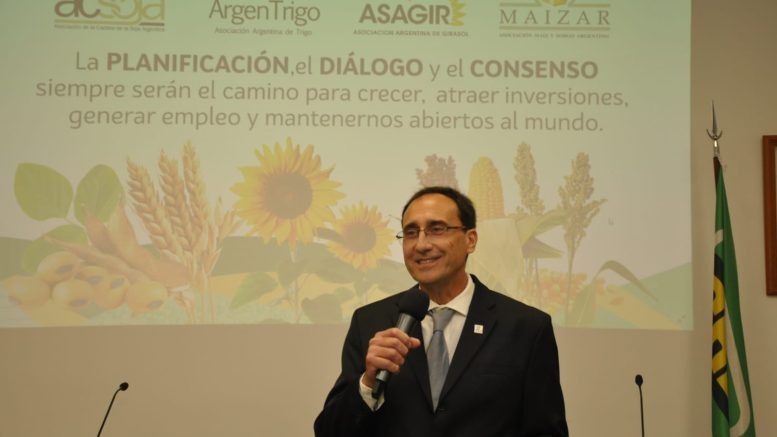AgriBrasilis – How does the USA – China trade war affect Argentina’s wheat market?
Biscaisaque – The global instability caused by tensions between these two powers has altered international dynamics, affecting both prices and trade flows in the grain market. However, the high quality and competitiveness of Argentine wheat allow us to adapt by diversifying destinations and strengthening our export mechanisms, positioning us favorably in an ever-changing global environment.
AgriBrasilis – Has Argentine wheat fully entered the Chinese market?
Biscaisaque – We have made significant progress in accessing the Chinese market by negotiating a phytosanitary protocol for wheat exports to the Asian country. However, no operations have yet been finalized for this destination. The market is open, but the commercial opportunity to initiate this export flow is still pending.
AgriBrasilis – How can Argentina expand its presence in the international market?
Biscaisaque – As wheat production increases, Argentina will be able to expand its presence in the international market and regain some of the market share it once held. The export volumes in recent years—around 3 million tonnes in 2023, impacted by drought, and 8.1 million tonnes in 2024—are still far from the volumes exported between 2017 and 2022, which reached a peak of 14 million in 2022. Negotiating better access to destination countries, strengthening logistics through strategic alliances, and participating in global trade fairs will allow us to open new markets and meet the demands of both emerging markets and our traditional destinations.
“Wheat prices have been volatile, influenced by international factors…”
AgriBrasilis – What are the impacts of the reduction of retenciones on wheat?
Biscaisaque – The reduction of retenciones provided fiscal relief, resulting in higher margins for farmers and offering a competitive advantage in international markets. However, it is crucial to highlight that this measure is valid only until June 30th, meaning it will not impact the next season. This temporary limitation creates uncertainty in the sector, making it difficult to make decisions about the planting area and to formulate price hedging strategies in a scenario already marked by volatility.
AgriBrasilis – How are wheat prices behaving?
Biscaisaque – Wheat prices have been volatile, influenced by international factors, fluctuations in the dollar, and adverse weather conditions. Nevertheless, the commitment to quality that characterizes our grain has allowed us to maintain competitive FOB prices, ensuring a strong position even in unfavorable market conditions.
AgriBrasilis – What has changed after the approval of HB4 wheat?
Biscaisaque – The approval of HB4 wheat represents a significant advancement for the sector, incorporating a wheat variety that is more resistant to drought and allows for more efficient herbicide use. However, despite approvals in some countries, no export transactions for this product have been completed so far. All production has been exclusively directed to the local milling industry, and for now, there are no significant changes expected in this scenario.
AgriBrasilis – What are the estimated losses due to drought in recent seasons?
Biscaisaque – Drought conditions have significantly affected some key production regions, with estimated losses of up to 10%. This scenario highlights the ongoing need for investments in irrigation technologies and the adoption of agronomic practices that mitigate the impacts of adverse climatic conditions, strengthening the sector’s resilience and production continuity.

